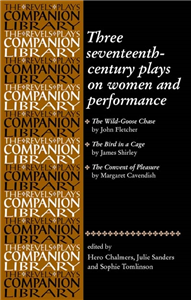Your Search Results
-
Palazzo Editions Ltd.
We are a young and flourishing independent publishing company based in Barnes, London. We create beautifully designed and illustrated books for the UK and international markets in the areas of popular culture, music, film, art, design and architecture, history and biography, and children's books.
View Rights Portal
-
Promoted ContentFebruary 2001
Die Legende von Bagger Vance
Roman
by Pressfield, Steven / Übersetzt von Sabinski, Johannes
-
Promoted ContentMarch 2009
Hero und Leander
by Musaios, Marion Giebel, Marion Giebel
Hero, von den Eltern zur Priesterin bestimmt, lebt allein in Sestos am nördlichen Ufer der Dardanellen. Im gegenüberliegenden Abydos stürzt sich auf der asiatischen Seite Leander allnächtlich in die Fluten, um, geleitet von der Öllampe, die Hero ins Fenster ihres Wohnturms stellt, zu ihr zu gelangen – bis eines Nachts im Sturm die Flamme verlischt. Die Sage von den zwei Königskindern, die zusammen nicht kommen können, weil das Wasser viel zu tief ist, hat schon Ovid gestaltet, ihre vollendete Fassung, auf die sich auch Bearbeiter wie Schiller und Grillparzer beziehen, findet sich aber in dem Versepos des Musaios, der um 500 nach Christus lebte. In der neuen, eleganten Prosaübertragung von Marion Giebel wird dieser anrührende Text, mit bildnerischen Darstellungen des Mythos aus verschiedenen Zeiten sowie einem die geschichtlichen Zusammenhänge erläuternden Nachwort versehen, wieder auf deutsch zugänglich gemacht.
-
 Trusted Partner
The ArtsJanuary 2026
Trusted Partner
The ArtsJanuary 2026David Simon's American City
by Mikkel Jensen
This book examines the television serials created by influential showrunner David Simon. The book argues that Simon's main theme is the state of the contemporary American city and that all of his serials (barring one about the Iraq War) explore different facets of the metropolis. Each series offers distinctly different visions of the American city, but taken together they represent a sustained and intricate exploration of urban problems in modern America. From deindustrialisation in The Wire and residential segregation in Show Me a Hero to post-Katrina New Orleans in Treme and the transformation of the urban core in The Deuce, David Simon's American city traces the urban through-line in Simon's body of work. Based on sustained analysis of these serials and their engagement with contemporary politics and culture, David Simon's American city offers a compelling examination of one of television's most arresting voices.
-
 Trusted Partner
FictionSeptember 2017
Trusted Partner
FictionSeptember 2017A Vision of Battlements
by Anthony Burgess
by Andrew Biswell, Paul Wake
A Vision of Battlements is the first novel by the writer and composer Anthony Burgess, who was born in Manchester in 1917. Set in Gibraltar during the Second World War, the book follows the fortunes of Richard Ennis, an army sergeant and incipient composer who dreams of composing great music and building a new cultural world after the end of the war. Following the example of his literary hero, James Joyce, Burgess takes the structure of his book from Virgil's Aeneid. The result is, like Joyce's Ulysses, a comic rewriting of a classical epic, whose critique of the Army and the postwar settlement is sharp and assured. The Irwell Edition is the first publication of Burgess's forgotten masterpiece since 1965. This new edition includes an introduction and notes by Andrew Biswell, author of a prize-winning biography of Anthony Burgess.
-
 Trusted Partner
Trusted Partner
-
 Trusted Partner
Trusted Partner
-
 Trusted Partner
November 1999
Trusted Partner
November 1999Die letzte Nacht des Jahrtausends
Neue Stories aus England
by Herausgegeben von Champion, Sarah
-
 Trusted Partner
Literature & Literary StudiesJanuary 2013
Trusted Partner
Literature & Literary StudiesJanuary 2013The world of El Cid
Chronicles of the Spanish Reconquest
by Simon Barton, Richard Fletcher
Makes available, for the first time in English translation, four of the principal narrative sources for the history of the Spanish kingdom of León-Castile during the eleventh and twelfth centuries. Three chronicles focus primarily upon the activities of the kings of León-Castile as leaders of the Reconquest of Spain from the forces of Islam, and especially upon Fernando I (1037-65), his son Alfonso VI (1065-1109) and the latter's grandson Alfonso VII (1126-57). The fourth chronicle is a biography of the hero Rodrigo Díaz, better remembered as El Cid, and is the main source of information about his extraordinary career as a mercenary soldier who fought for Christian and Muslim alike. Covers the fascinating interaction of the Muslim and Christian worlds, each at the height of their power. Each text is prefaced by its own introduction and accompanied by explanatory notes.
-
 Trusted Partner
Trusted Partner
-
 Trusted Partner
Trusted Partner
-
 Trusted Partner
August 2026
Trusted Partner
August 2026Pure Grace Academy (Band 2) - The Highest Fall
by Jennifer Bright
Wenn der Applaus verstummt Luna Delgados großer Traum ist zum Greifen nah: eine Position im Ballettensemble der Pariser Oper nach ihrem Abschluss an der Pure Grace Academy. Doch kurz vor den finalen Prüfungen gerät sie ins Fadenkreuz anonymer Drohungen gegen ihre Mutter, der Chefin des spanischen Geheimdienstes. Um in Paris bleiben zu dürfen, bekommt Luna einen Bodyguard zugewiesen. Zane ist kompromisslos, selbstbewusst, gefährlich attraktiv – und zu allem Überfluss auch noch der beste Freund ihres Bruders. Er stellt Regeln auf, die sie sofort brechen will. Während die Bedrohung näher rückt, verschwimmen die Grenzen zwischen Pflicht und Verlangen. Doch zwischen Luna und Zane steht nicht nur sein Auftrag, sondern Geheimnisse, die sie beide zerstören könnten. Zwischen Barcelona und Paris : In der Fortsetzung der Pure Grace Academy entfesselt SPIEGEL -Bestsellerautorin Jennifer Bright eine verbotene Liebe inmitten gefährlicher Intrigen . Ballett im Dark-Academia-Stil trifft auf Haters To Lovers und eine mitreißende Bodyguard Romance , die knistert wie ein Lauffeuer. Ein eleganter Tanz zwischen Gefahr und Intrigen : Dynamische Action trifft auf die formvollendete Welt des Balletts Geheimnisse aus der Vergangenheit , die eine verbotene Liebe auf die Probe stellen Haters to Lovers mit heißem Bodyguard , Brother’s Best Friend und Dark Academia Vibes Immersiver Schreibstil mit bildhafter Sprache und leidenschaftlichem Spice ! Mit edlem Farbschnitt und exklusiver Charakterpostkarte in der Erstauflage - Nur solange der Vorrat reicht!
-
 Trusted Partner
Trusted Partner
-
 Trusted Partner
Trusted Partner
-
 Trusted Partner
September 1997
Trusted Partner
September 1997Ein schwankender Champion
Roman
by Adolfo Bioy Casares, Peter Schwaar
Adolfo Bioy Casares wurde am 15. September 1914 in Buenos Aires (Argentinien) geboren. 1932 lernte er im Haus der Essayistin und Literaturkritikerin Victoria Ocampo Jorge Luis Borges kennen und zwei Jahre darauf seine spätere Frau Silvina Ocampo, die ihn gemeinsam mit Borges überzeugte, sein Studium der Rechtswissenschaften und der Philosophie aufzugeben und sich ganz der Literatur zu widmen. 1940 veröffentlichte er La invención de Morel (dt. Morels Erfindung, Neuübersetzung von 2003), sein wohl bekanntester Roman und inzwischen ein Klassiker der phantastischen Literatur. 1954, das Jahr in dem seine einzige Tochter, Marta, geboren wurde, veröffentlichte er El sueño de los héroes (dt. Der Traum der Helden), einen seiner durch Thematik, Sprach- und Lokalkolorit 'argentinischen' Romane. Unter den gemeinsamen Pseudonymen H. Bustos Domecq und B. Suárez Lynch verfaßte er mit Borges zusammen zahlreiche Erzählungen, unter anderem die Kriminalgeschichten Seis problemas para don Isidro Parodi (dt. Sechs Aufgaben für Don Isidro Parodi). 1990 erhielt Bioy Casares den bedeutendsten Literaturpreis der spanischsprachigen Welt: den Premio Cervantes. Er starb 1999 in Buenos Aires. Peter Schwaar, geboren 1947 in Zürich, dort Gymnasium und Abitur, literatur- und musikwissenschaftliche Studien in Zürich und Berlin, Redakteur Kultur und Lokales beim Zürcher Tages-Anzeiger. Seit 1987 freier Übersetzer und Autor. Übertragungen aus dem Spanischen von Eduardo Mendoza, Carlos Ruiz Zafón, Tomás Eloy Martínez, Juan José Millás, David Trueba, Zoé Valdés, Adolfo Bioy Casares, Francisco Ayala, Javier Tomeo, Álvaro Mutis, Jorge ibargüengoitia u.a. Lebt in Barcelona.
-
 Trusted Partner
Humanities & Social SciencesJuly 2018
Trusted Partner
Humanities & Social SciencesJuly 2018Republican learning
by Justin Champion, Peter Lake, Anthony Milton, Jason Peacey, Alexandra Gajda
-
 Trusted Partner
Trusted Partner
-
 Trusted Partner
Trusted Partner
-
 Trusted Partner
Trusted Partner
-
 Trusted Partner
Literature & Literary StudiesNovember 2011
Trusted Partner
Literature & Literary StudiesNovember 2011Three seventeenth-century plays on women and performance
by Paul Edmondson, Hero Chalmers, Julie Sanders, Sophie Tomlinson, Martin White
This is a ground-breaking edition of three seventeenth-century plays that all engage in diverse and exciting ways with questions of gender and performance. The collection, edited by three pioneering scholars of elite female culture and early modern drama, makes the texts of three much-discussed plays - John Fletcher's The Wild-Goose Chase, James Shirley's The Bird in a Cage and Margaret Cavendish's The Convent of Pleasure - available together in a full scholarly edition for the first time. The Wild Goose Chase (1621) and The Bird in a Cage (1633) were both performed in the commercial London theatres in the Jacobean and Caroline periods respectively. The Convent of Pleasure (1668) is a so-called 'closet' drama, designed primarily for reading but drawing on a tradition of aristocratic theatricals. In a wide-ranging co-authored introduction to the volume, the editors explore the concerns of these playtexts in relation to contemporary debates surrounding popular festivity and anti-theatricalism, as well as the agency of elite female culture in the Stuart period and the emergence of the professional female actor in the Restoration. The volume will be an invaluable teaching and research tool for students and scholars of early modern drama, women's writing and performance studies more generally, as well as providing a rich sourcebook for the reader interested in seventeenth-century theatrical culture. ;
-
 Trusted Partner
Trusted Partner






























